Environmentally friendly coffee farming
Sustainable Practices
Our company is aware of the social and environmental problems, these two aspects are important for us, we contribute as a source of employment helping 900 families in the area.
Environmental Care
We adopted friendly environmental practices, we don't use chemicals, like herbicides that can damage the soil, we built bench terraces and filtrations pits avoid the erosion and conserve the water.
On our farm, we practice sustainable coffee growing by returning coffee pulp and husks to the soil as natural organic fertilizer.
Organic fertilizer 🌱
🌳 | Returning Organic Matter to Coffee Plantation Soils
In regenerative agriculture, noble weeds play a fundamental role in protecting and improving soil health.
These species help conserve moisture, add organic matter, and maintain biodiversity,
reducing erosion and strengthening the natural fertility of coffee plantations.
Pits in Coffee Growing
💧 | Soil Conservation and Erosion Control
Pits in coffee plantations are an essential practice to conserve the soil, reduce runoff, and prevent erosion.
They also help rainwater infiltrate, improving soil moisture and ensuring a healthier and more productive coffee farm.
Forestation
🌳🌍 | Planting Life for the Future.
On our farm, we carry out constant forestation, planting fruit and timber trees every year to strengthen our coffee forest.
With this practice, we contribute to caring for the environment, preserving biodiversity, protecting flora and fauna,
and ensuring a healthy and sustainable ecosystem for future generations.
Shade Trees 🌳
🌲 | Allies of Coffee and Soil
On our farm, we grow coffee under the shade of fruit and timber trees, which protect the plants from direct sunlight,
preserve soil moisture, and provide organic matter that transforms into natural fertilizer.
This practice improves productivity, sustainability, and biodiversity in the coffee plantation.
Coffee Berry Borer
🐛 | The Most Lethal Pest in Coffee Plantations
Fight the coffee berry borer naturally: learn how to use effective traps that reduce this pest without relying on pesticides.
An economical, sustainable, and environmentally friendly alternative.
Sustainable Coffee
🚫🌿 | Weed Control without Chemicals
Weed control without herbicides not only keeps the coffee plantation healthy, but also protects the soil, water, biodiversity,
and the health of the farmer.
while adding economic value to the coffee in a market that increasingly demands greater sustainability.
Weed Control
🚫🌿 | No Herbicides Needed
Weed control in coffee plantations without the use of herbicides is essential to protect soil health, preserve biodiversity,
and maintain a balanced ecosystem.
By avoiding chemicals, nutrient retention is enhanced, and water contamination is reduced.
Healthy Plantations
🍂 | The Importance of Pruning
Proper management of coffee tree tissues, through practices such as topping and pruning,
is essential to ensure the plant’s health, productivity, and longevity.
These activities help regulate the height of the coffee tree, renew branches, improve aeration and light penetration,
and control pests and diseases.
Our Coffee Farms
We were patient when we acquired our farms, we always take care that the conditions are the best for the most sophisticated varieties we plan to grow, the volcanic minerals, the vast organic material of the soil, the lack of wind and the accessibility of our farms allowed us to achieve this goal.
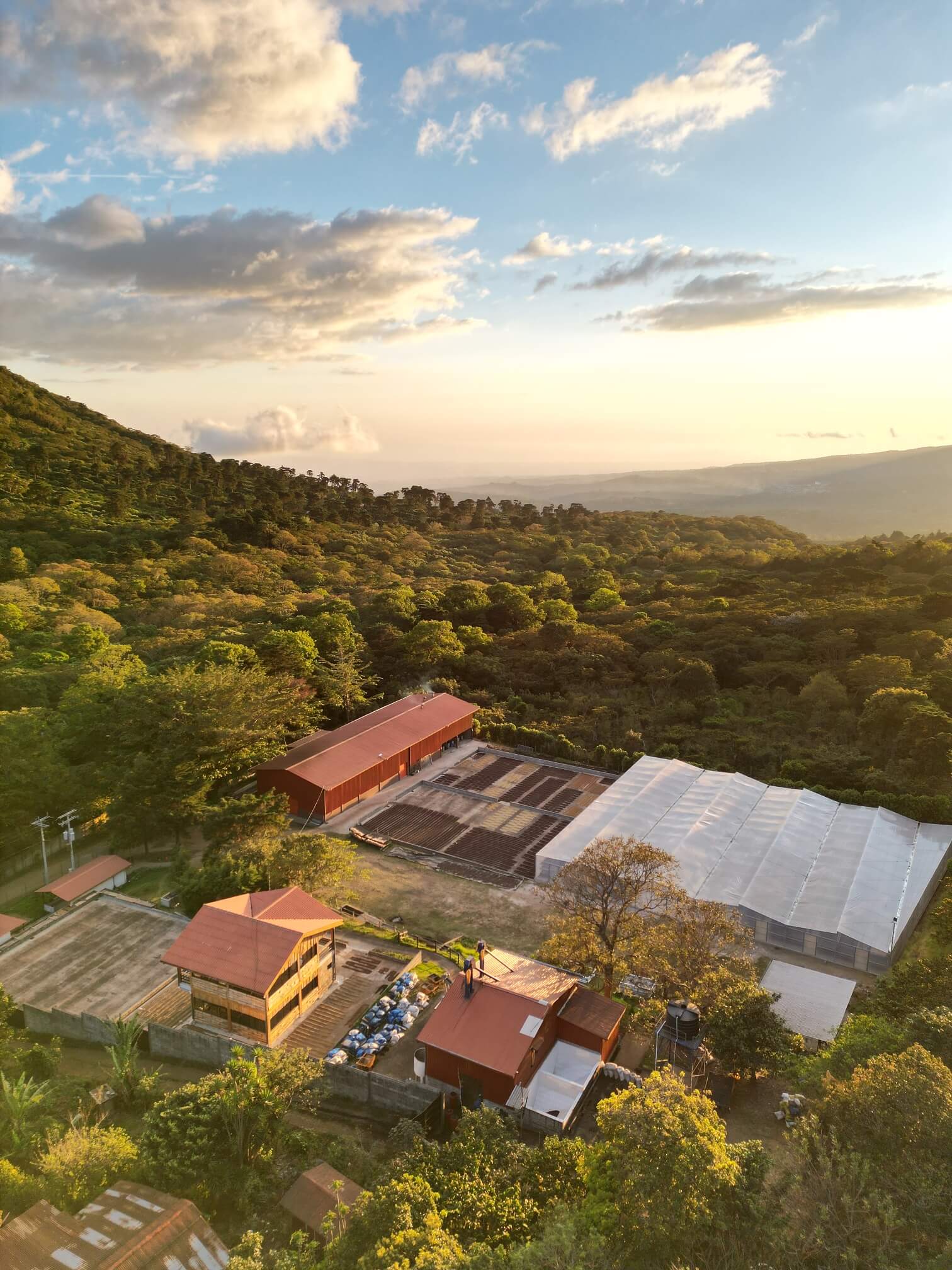
Los Naranjos
Location: Cantón Los Naranjos, Sonsonate
Height: 4,757 fasl to 5,577 fasl
Capacity: 38 hectares
Varieties
- • 20% Pacas
- • 10% Pacamara
- • 10% Red Bourbon
- • 10% Geisha
- • 50% Catimor
Los Naranjos farm is a pride for this company, it has been the school to develop a broad knowledge about coffee growing but
most important it helped the company to recognize the importance of sustainability practices.
The greatest satisfaction that the farm has is the sense of belonging that it has acquired from the community,
generating sources of employment, helping with the schools and collaborating with the access of drinking water,
benefiting more than 80 families in the area.
Our sustainable agriculture practices opened us the opportunity to get the C.A.F.E Practice certification,
but more importantly, it allows us to be an example company of sustainable practices.
The farm has a soil rich in volcanic minerals and organic matter with a canopy of trees that provides a
variety of shades, located in the middle of the two hills the "Pilón" and "El Águila"; This area provides a
wide variety of microclimates appropriate for a wide variety of coffee trees. This was the first farm acquired by the company.
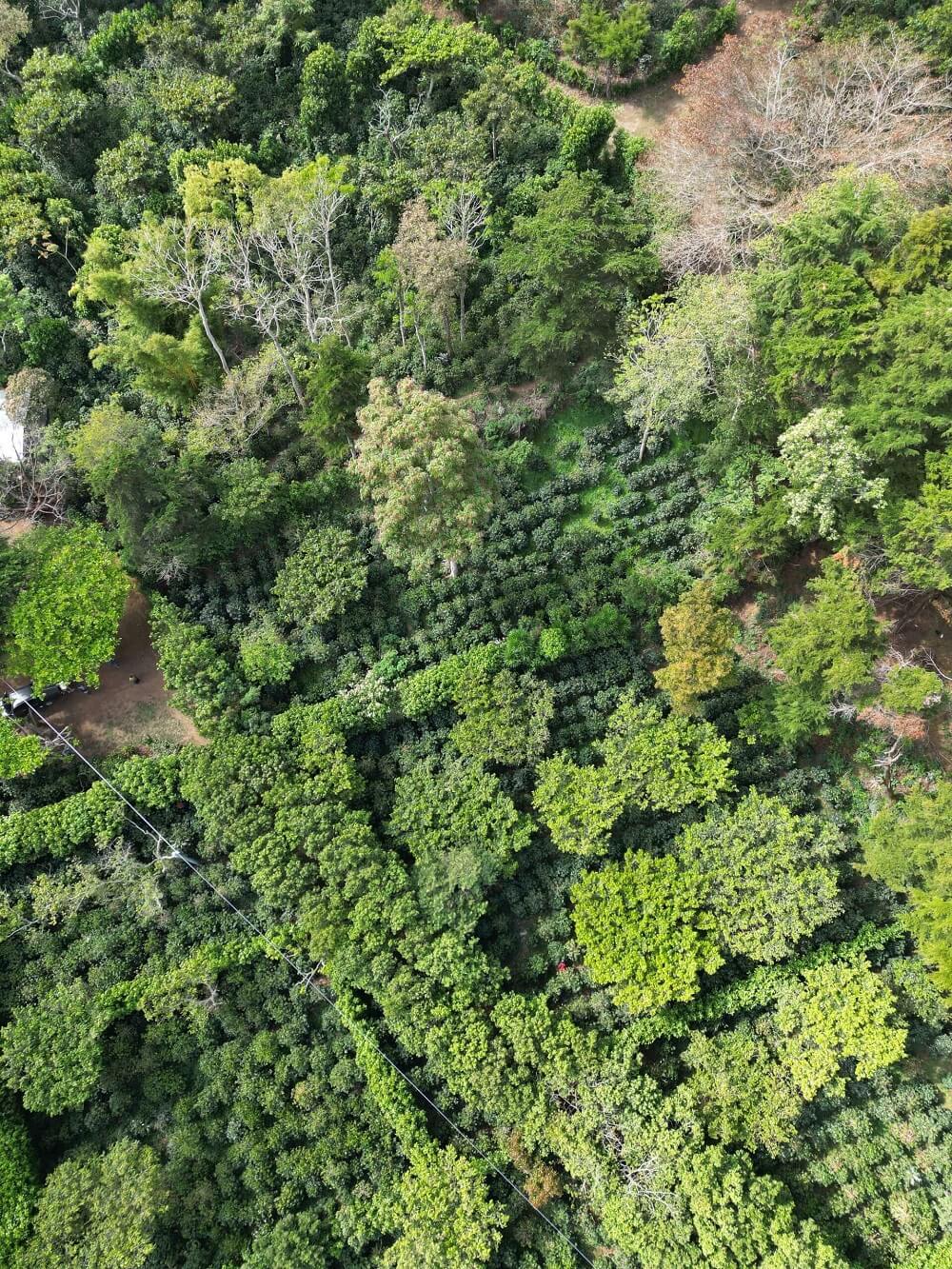
Noruega
Location: Apaneca, Ahuachapán
Height: 4,593 fasl to 5,751 fasl
Capacity: 31 hectares
Varieties
- • 55% Red Bourbon
- • 30% Pacamara
- • 5% Orange Bourbon
- • 5% Kenya (SL28)
- • 5% Geisha
The Noruega farm, has an excellent accessibility, just five minutes from the town of Apaneca (a place known for its tourist activity), generating sources of employment and benefiting many families in the area. The farm has an extensive biodiversity. The company invested in solar panels for the protection of the environment in this way we provide energy-conserving the environment and benefiting one of our collaborators and his family. Another virtue of the farm is that in a short displacement, the heights can vary from 4,757 fasl to 5,413 fasl, having a variety of microclimates, this has allowed us to widely diversify our varieties. The soil rich in organic matter, the high moisture retention capacity and the diverse amount of shade has greatly benefited the development of the coffee tree.
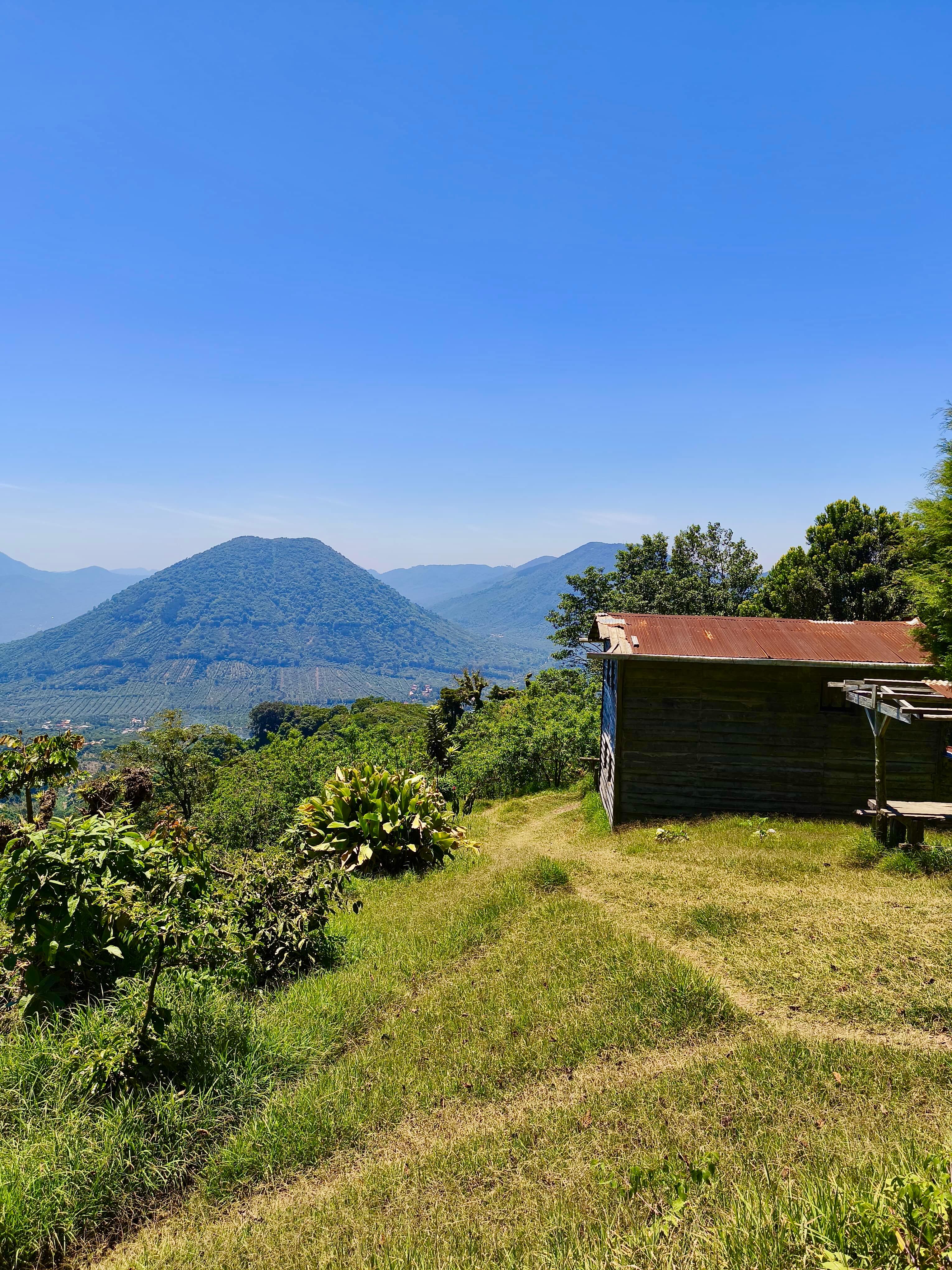
Ethiopia
Location: Cerro Ilamatepec, Santa Ana
Height: 6,069 fasl to 6,712 fasl
Capacity: 31 hectares
Varieties
- • 75% Geisha
- • 25% Kenya (SL28)
Ethiopia farm, located in a mountainous area, has an impressive natural beauty, it is common to find a variety of trees; also, it's home of many animal species such as toucans, deer, armadillos, among others. Due to its great biodiversity, friendly practices with the environment have been adopted, when growing coffee starts, such as soil conservation, making use of utensils, such as machetes, for the control of the weeds instead of the use of chemicals like herbicides. Also, the construction of bench terraces and filtration pits, to avoid erosion, conserving soil and water. The rich volcanic soil, the high content of organic minerals, the microclimates, the lack of wind and the height have allowed us to develop the cultivation of boutique coffee varieties such as Geisha and Kenya (SL28).
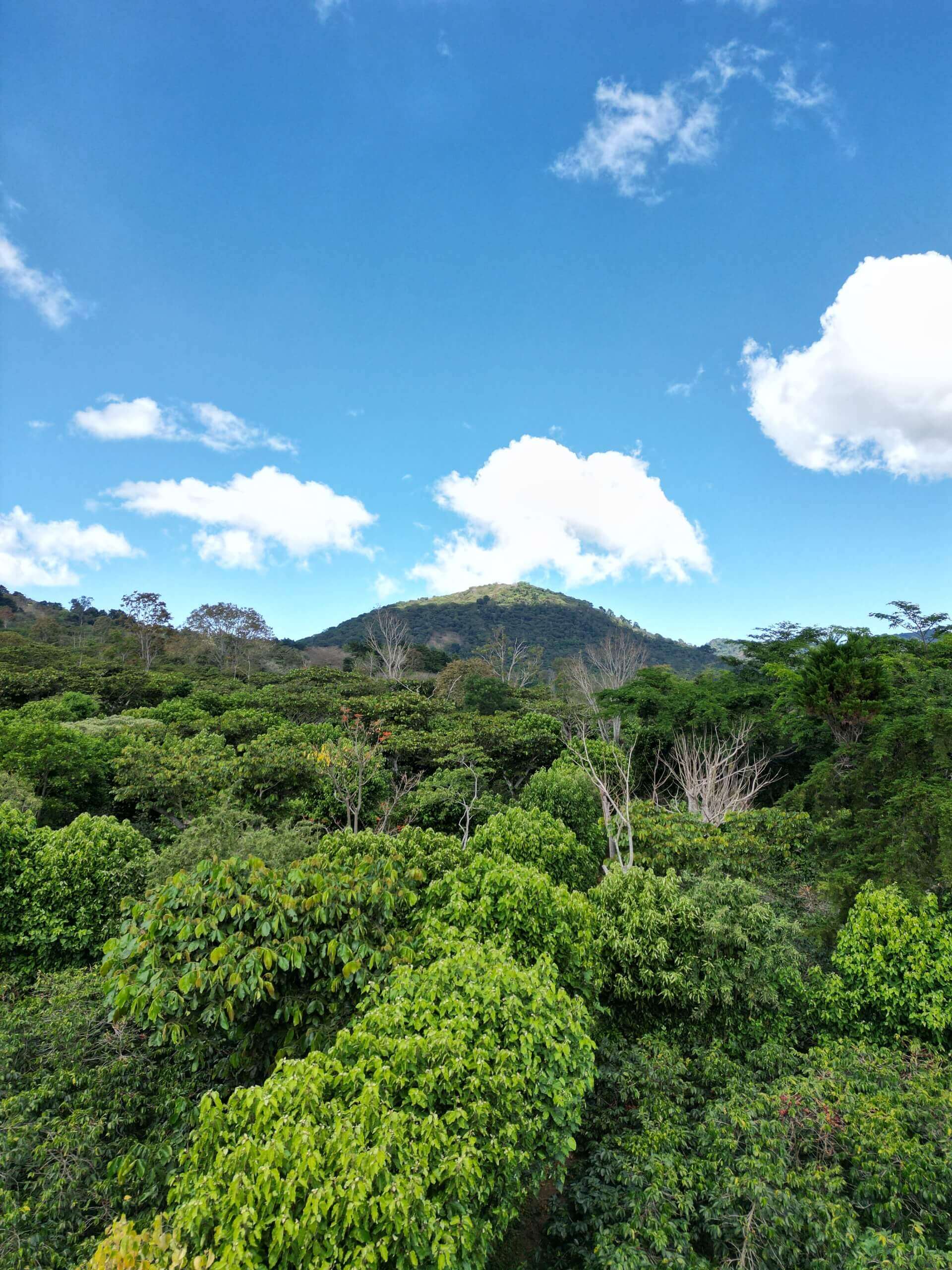
Los Angeles
Location: Apaneca, Ahuachapán
Height: 4,527 fasl
Capacity: 16 hectares
Varieties
- • 100% Pacamara
Los Angeles farm is located a few minutes from the town of Apaneca. It has a loam soil, its land is totally flat, so it lacks the possibility of erosion or another type of related loss; In addition, it has a large content of organic matter with a large amount of shade and ideal microclimates for the Pacamara coffee tree.
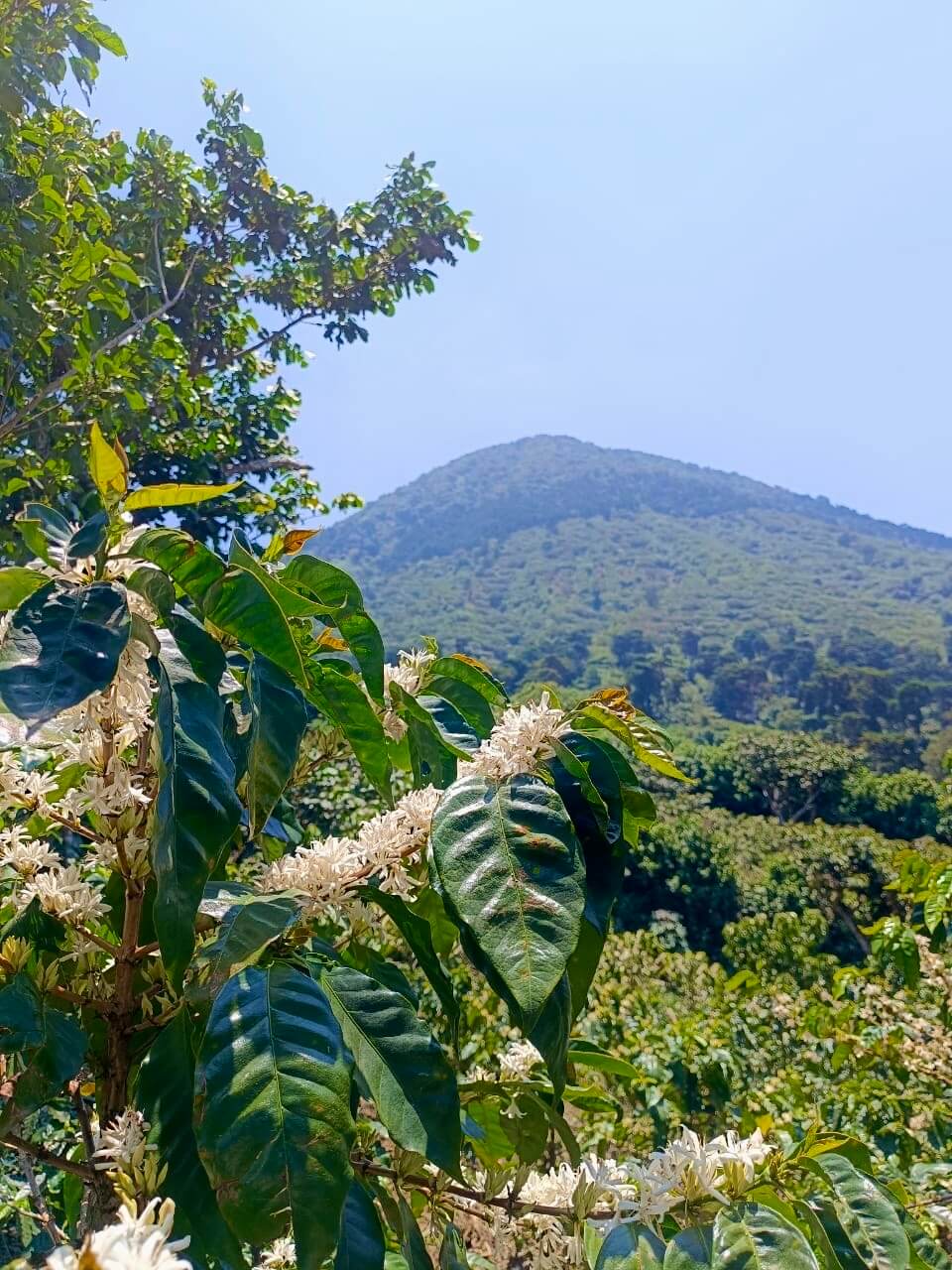
El Zapote y la Fé
Location: Chalchuapa, Santa Ana
Height: 4,265 fasl
Capacity: 16 hectares
Varieties
- • 100% Red Bourbon
Los Angeles farm is located a few minutes from the town of Apaneca. It has a loam soil, its land is totally flat, so it lacks the possibility of erosion or another type of related loss; In addition, it has a large content of organic matter with a large amount of shade and ideal microclimates for the Pacamara coffee tree.